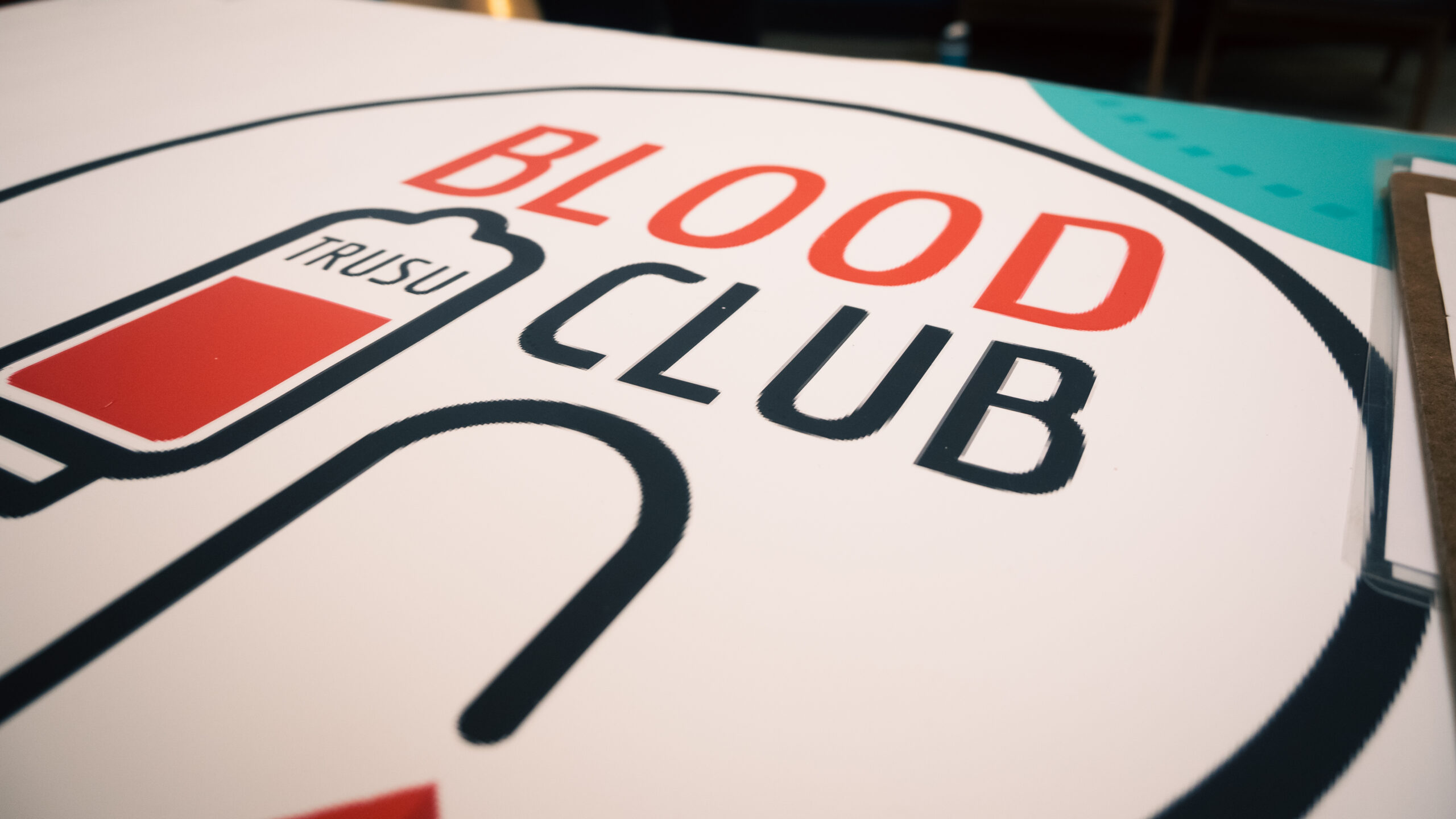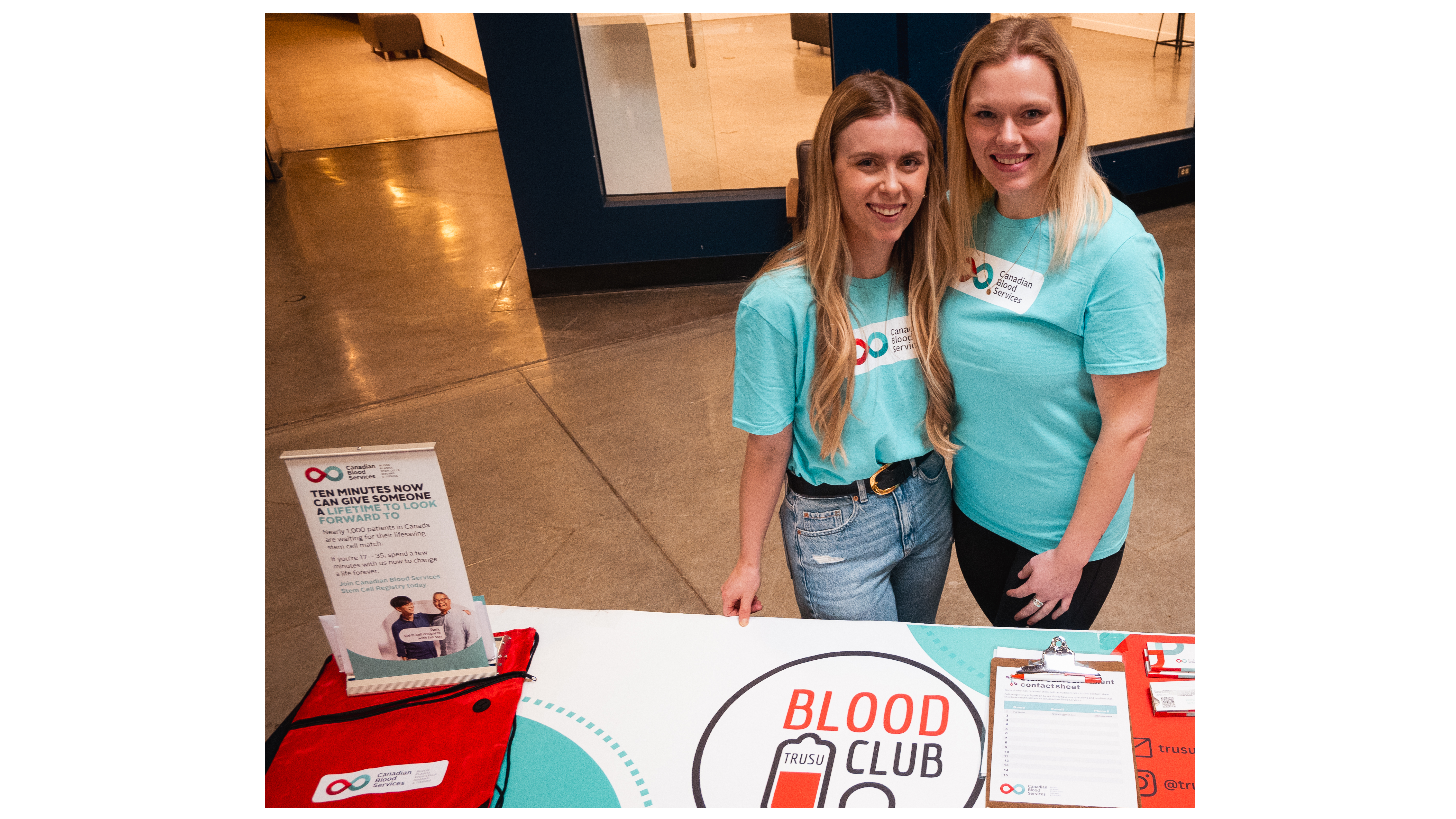TRU’s Blood Club has been active on campus since the pandemic promoting blood donation, and their new president is looking to get more students involved.
Blood Club members often do their part to help curb the shortage by donating blood to Canadian Blood Services for medical use while encouraging others who can do the same to donate. Blood and stem cell donation tables are regularly hosted by the club on campus to inform students and raise awareness.
According to the Canadian Blood Services website, less than two per cent of eligible donors actively donate, despite the ongoing demand for new blood and plasma donations.
Kamloops does not have a permanent clinic, but the TRUSU Blood Club president, Emily Fagg, said that a pop-up clinic is typically hosted monthly for three days at the Oasis Church in Aberdeen.

A pair of nursing students founded the club during the pandemic but have since graduated. Fagg, now the club’s president, joined as a member in 2021 after being diagnosed with a medical condition that requires her to donate blood.
“I found out that had high iron levels,” said Fagg. “So now I have to consistently donate for the rest of my life.”
While donating her blood, Fagg noticed a lack of people who looked like her.
“I had never donated prior to [the diagnosis], and I had noticed the need for younger donors,” Fagg said. “I was the youngest in there by a large margin.”
Niki Randall, Kamloops’ community services manager for Canadian Blood Services, explained why donating is so important.
“Canada’s national blood supply is currently healthy and able to meet the needs of hospitals in this country,” Randall said on the current blood donation climate. “But the need for blood and plasma is constant. We need 100,000 new donors [nationwide] each year to ensure we continue to meet patient needs.”
Randall said the best way for new donors to get involved is by downloading the GiveBlood application on their smartphones or visiting blood.ca to book a donation appointment.
Typically, donated blood is used for various medical patients, including individuals with cancer, accident victims, surgery patients and those with blood conditions. However, Randall said that these patients often require more blood than a single donor can provide. For instance, she explained that eight donors per week are usually necessary for leukemia patients, and other conditions can require repeated donation.
This need is why the Blood Club feels their presence on campus is necessary to raise awareness.
The club currently has 38 members and new students are always encouraged to join. Anyone with questions and those who are curious about donating can reach the blood club through their Instagram page or via email at trusubloodclub@gmail.com.

